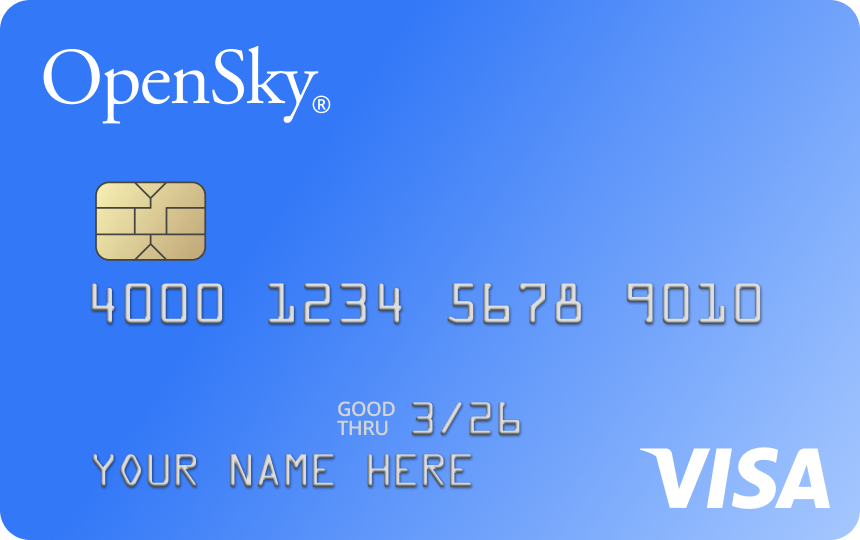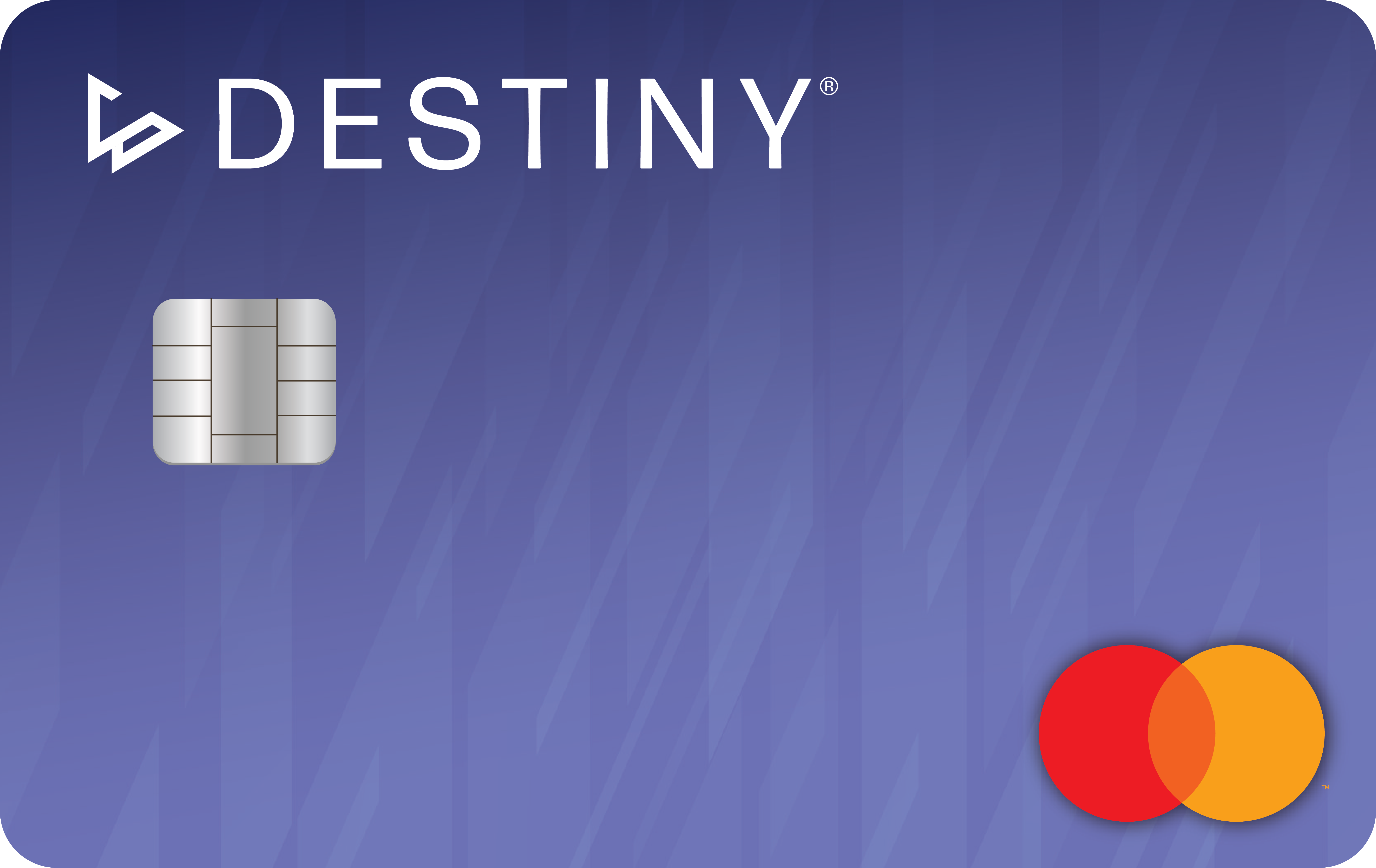
Getting a New Line of Credit Is Easy
On the hunt for a credit card? Whether you’ve just started looking or you’ve been looking for a while, you might’ve realized that some credit cards are hard to qualify for. So you might want to refine your search to the easiest credit cards to get.
There isn’t one, or even a few, credit card that’s easier to get than other cards. But some types of cards are certainly easier to get approved for than others. We’ll outline credit card and debit card options for those who don’t have great credit or any credit history at all.
Featured Cards That Are Easy to Get
In the simplest terms, a line of credit is a specific amount of credit that is extended by a lender to a consumer. This comes in a lot of shapes and sizes: credit cards, loans, HELOCs, CDs, etc. Basically, lines of credit let you borrow a certain amount, which you have to pay back on time.
OpenSky® Secured Visa® Credit Card
The OpenSky® Secured Visa® credit card is one option for individuals with poor or no credit at all. It has an 85% average approval rate for the past five years, and you can start with a deposit as low as $200.

Destiny Mastercard® – $700 Credit Limit
The Destiny Mastercard® – $700 Credit Limit credit card is not secured, which means you don’t have to put up a deposit to secure your initial line of credit.

First Latitude Secured MasterCard® Credit Card
First Latitude Secured MasterCard® Credit Card
Types of Credit Cards That Are Easy to Get
The three featured credit/debit cards listed above aren’t necessarily the easiest credit cards to get. And, like we said before, they may not be the best credit cards for you. To help you find a credit card that works for your financial situation, here are some credit cards that are usually easy to be approved for.
Secured Credit Cards
Secured credit cards require you to make a security deposit, which is typically used as your credit limit. Secured credit cards are typically easy to get because they don’t hold a lot of risk for the lender. If you run up your credit limit and miss your payments, the lender can close your account and keep your deposit to recoup its losses.
Applying for a secured credit card can be a good way to work on your credit. Many of these cards report payment history to all three credit bureaus. And if you make consistent, on-time payments, you can build better credit over time.
Student Credit Cards
Some credit card companies offer credit cards designed for college students. While you don’t necessarily have to be in college to apply, lenders have created these cards specifically for students. Since they know college students are unlikely to have extensive credit histories, the application requirements for student credit cards can be less rigorous than those associated with other cards.
Store Credit Cards
Store credit cards are sometimes easier to qualify for because they come with limitations that make them less risky for the lender. They tend to have higher interest rates than other cards, making it easier for lenders to make money. And the fact that you can only use the card in a specific store limits how much many people spend. Applying for a store credit card can be a good way to start building your credit, especially if you can find one that offers a 0% introductory APR.
Prepaid Debit Cards
Prepaid debit cards aren’t actually credit cards, so you don’t build any debt on them and don’t pay interest. Because you’re not borrowing money, these cards are fairly easy to get. The benefits of applying for a prepaid debit card are that you can use them wherever you use credit cards, which may help you shop online or pay at many local checkouts.
Applying for the Right Credit Card
It’s important to apply for the right credit card for you and not just apply to every card you find. Each time a lender pulls your credit to evaluate you for a loan or credit card, your credit report gets slapped with a hard inquiry. Each hard inquiry can bring your score down a bit, so avoid applying for cards you don’t qualify for.
What to Look for When Applying
Choosing the right credit card for you means understanding what factors matter most before applying. If you have poor or no credit or you’re in a hurry to get a credit card, here are some things to consider:
- Whether a security deposit is required. A secure credit card is easier to get, but because you have to put up a deposit, you don’t get the immediate benefits of credit. And you have to have the deposit to get started.
- What credit score is required. Most credit card companies don’t provide an exact score, but you can usually find out if good credit or higher is required.
- Interest rates and terms. Read the fine print to see what the interest rate ranges are and what fees you might pay so you understand the true cost of the credit card before you apply.
- Whether there’s a 0% APR introductory offer. Some store credit cards have introductory offers with 0% interest. That lets you make a larger purchase and pay it off over the introductory period without it costing more in interest.
- Whether there’s an annual fee. Annual fees can range from $25 to $100 or more, depending on the card. Make sure you know how much having your credit card will cost you each year.
- How fast you can get an answer. Most credit card applications can be processed in minutes online. You might also want to consider how fast the credit card arrives so you know when you’ll be able to use your new account.
When Is the Best Time to Apply?
The best time to apply for a credit card is before you actually need one. That way, you’re not making decisions out of urgency or desperation and can carefully consider your options and make a good choice.
Should You Apply for More Than One?
Applying for too many credit cards in a short period of time can hurt your credit, as previously mentioned in regard to hard inquiries. But if you already have a credit card, applying for another one isn’t necessarily a bad idea.
A second credit card increases your credit limit, which can be good for credit utilization. It also lets you take advantage of different perks offered by other credit card companies.
What to Do If You’re Rejected
The first step to take if you’re rejected for a credit card is to figure out why. If it was a technicality with the application, you may be able to reapply. If your credit score was too low, then you know you have to work on building more credit.
Consider signing up for ExtraCredit to get a full picture of your credit, including access to credit reports and 28 of your FICO scores. If you find inaccurate information on your credit reports, you can use credit repair steps and services to dispute the information and get it deleted or fixed, which can improve your score.
You might also want to consider getting added as an authorized user on someone else’s credit card account. If they manage their account well and pay their credit card bill on time, you can benefit from that timely payment history. This only works if the credit card in question reports information to the credit bureaus for authorized users too.
See All Credit Cards That Are Easy to Get
Check out some of these offers from our partners.



